Jing Ying Institute shares the beauty of Cantonese Opera with wider communities by launching its first talkback show
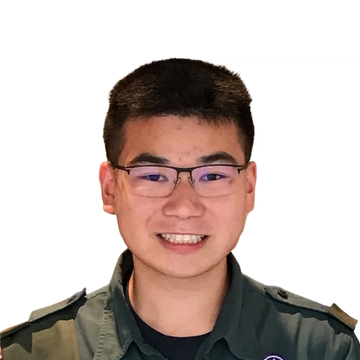
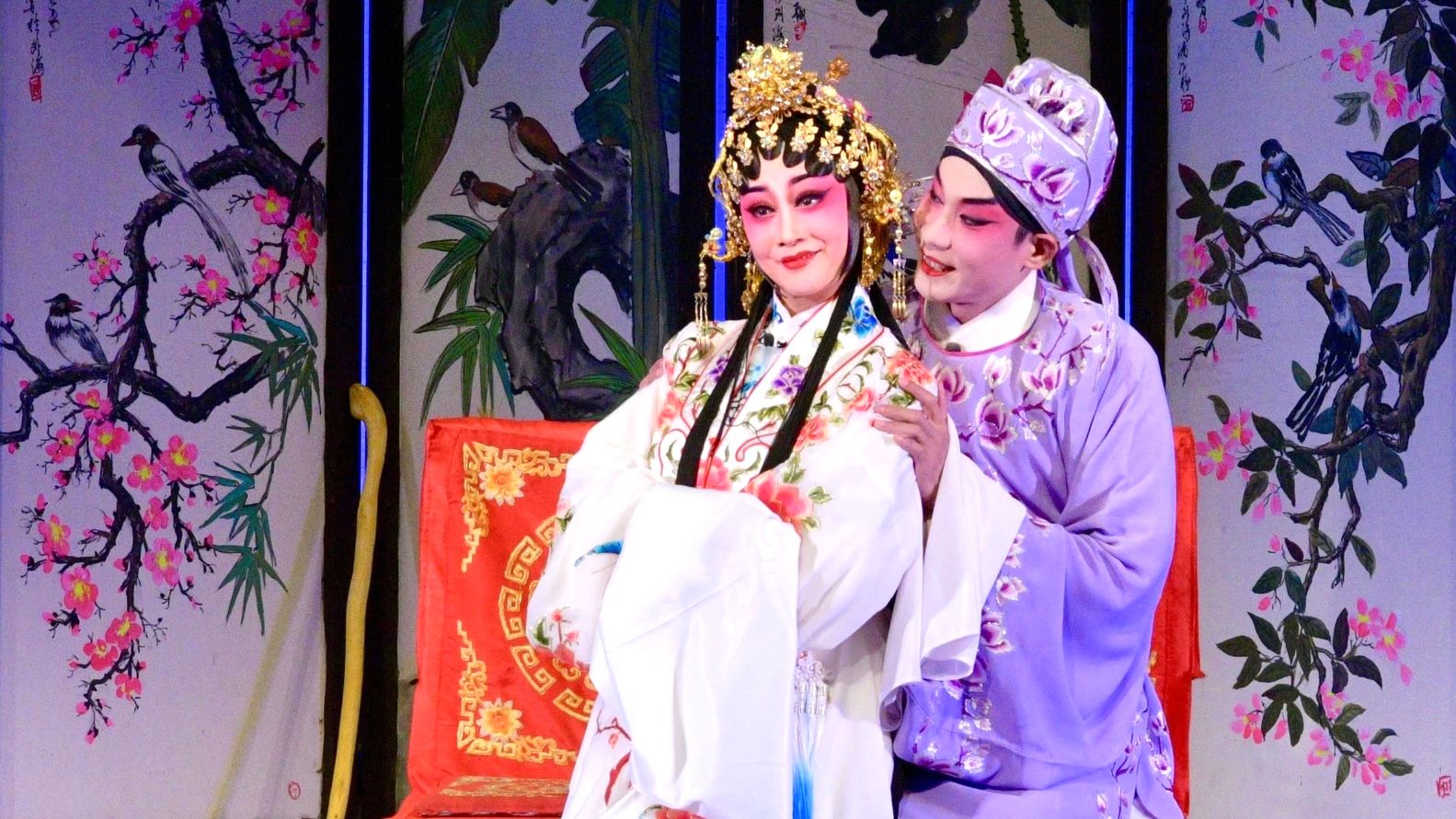
SAN FRANCISCO — To spread their passion for the art of Cantonese opera, the Jing Ying Cantonese Opera Institute debuted its first Cantonese Opera Talkback show in San Francisco. The institute and performers have also hoped that the talkback show would be a beginning to promote this rich Chinese art to wider communities.
The performance took place at the Children’s Creativity Museum Theatre in Yerba Buena Gardens on 4th Street in San Francisco Downtown on August 30, 2025.
With a total of three different performances, each section was followed by a 15-30 minute talkback spoken in English, where the team explained the historical context, culture, instruments played, and costumes worn for each segment. English subtitles were also provided for non-Cantonese speaking audiences.
The Talkback show marked a major success for the Jing Ying team as the space was flooded with people eager to watch. Among the audience was San Francisco Board of Supervisors President Rafael Mandelman, and District 11 Supervisor Chyanne Chen.
Recognized as an Intangible Cultural Heritage by the United Nations Educational Scientific and Cultural Organization (UNESCO), Cantonese opera is a major form of Chinese opera, an art form that tells classic tales of heroism, morality, and romance that have lived on through the centuries.
These elaborate performances incorporate unique costumes, singing, acrobatics, music, martial arts, and acting. It originated in the Guangdong province of Southern China and is popular in many Cantonese-speaking countries.
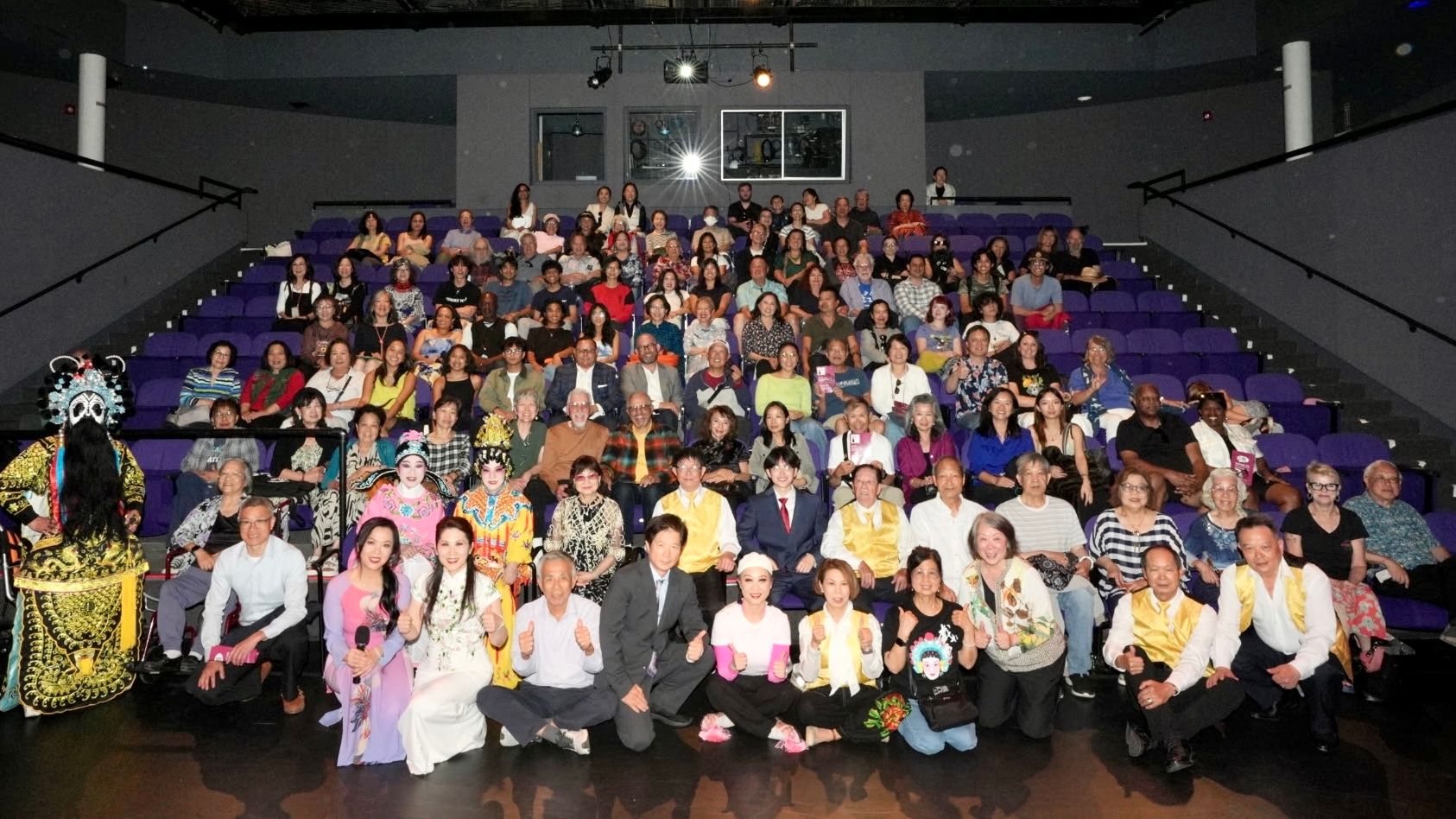
Founded in 1997 and located at 129 Waverly Place in San Francisco’s Chinatown, the Jing Ying Cantonese Opera Institute was established by Xiu Ben Chen, an erhu concertmaster with over 50 years of experience in the craft, to preserve and share the tradition of Cantonese opera through their development of various productions and educational initiatives. As of August 2024, the organization officially became a non-profit dedicated to the art.
Cantonese opera has remained a long-standing tradition through the dedicated work of people such as Chen, who is a fifth-generation descendant of Cantonese opera performers.
To continue what his ancestors started, Chen and his wife, Ginger Chen, have passed on the craft to their children, making them the 6th generation of their long lineage of performers.
His daughter Annie Chen also plays erhu, while his son Kelan Chen plays percussion. Both of whom have also participated in various Jing Ying productions.
In the song “Flooding of the Gold Mountain Temple,” audiences witnessed three generations of Chen’s family perform together, which included Chen himself, his wife Ginger Chen, his father Ziping Chen, and his son Kelan.
The show included the acts “A Mesmerizing Song for Zhou Yu” and “Farewell My King,” which incorporated many of the performative elements used in Cantonese Opera while the song “The Flooding of Gold Mountain Temple” only featured singing and music.
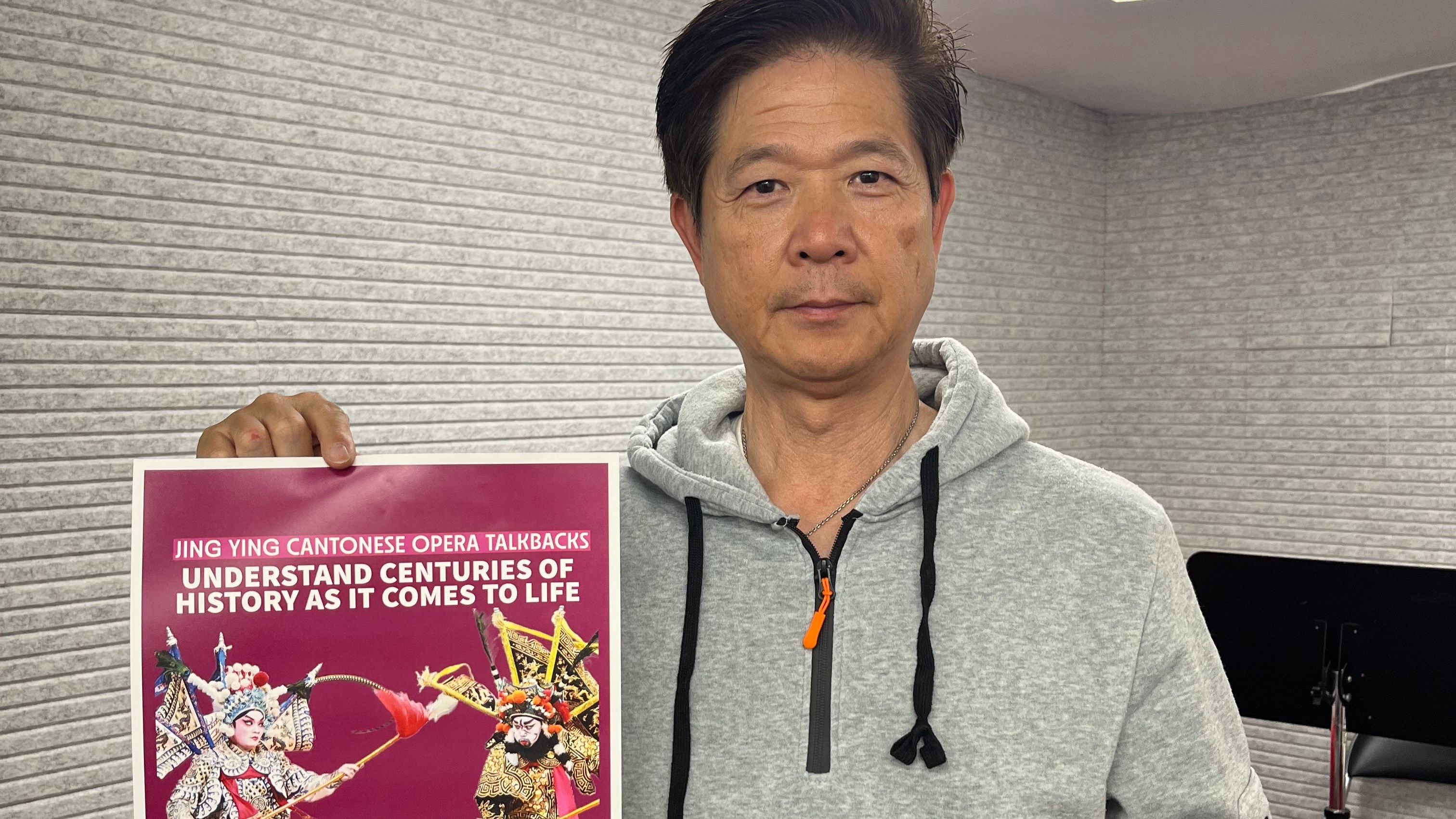
Understanding that audiences new to Cantonese opera may be overwhelmed upon their first viewing, finding the balance between performing an authentic Cantonese opera show and condensing it was a top priority.
The talkback format, a discussion between the cast, crew, and audience following a play's performance, was chosen to achieve this goal. Thus, the Jing Ying team hoped that audiences would become interested in what was discussed and therefore attended more Cantonese opera performances.
Following the talkback show, the Jing Ying team wanted to start an ongoing series of shows that each would celebrate elements of not only Cantonese and Chinese culture, but also APIDA (Asian Pacific Islander Desi American) heritage as a whole.
“This is not just Chinese or Cantonese cultural heritage,” Co-producer Esther Tang said in an interview with Wind Newspaper. “This is APIDA cultural heritage. It's for anyone who appreciates art and the performing arts. And if we appreciate the diversity that we have in this world as a collective community, I think all of us can do something and support each other.”
Tang also starred in the Clarion Performing Arts Center’s newest original play, “Canto Pride,” where she performed the segment, The Last Opera Diva of Havana, which told the story of Caridad Amaran, the last Cuban-Chinese Opera Diva.
Due to the decline of the Cuban-Chinese population and culture following the Cuban Revolution, Amaran dedicated her life to preserving her heritage through her performances. Tang hoped that future Jing Ying productions could similarly feature figures such as Amaran to ensure that they are not forgotten.
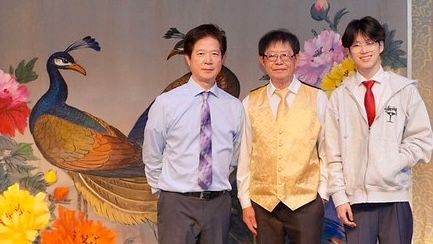
“If we don't bring awareness, if we don't keep it alive, we don't know what it'll look like in America. And with San Francisco being so diverse, I think it will be sad if we don't keep this diverse APIDA cultural heritage in the city.” Tang said.
The Talkback show stands as a testament to the ongoing efforts of the Chinatown community to spread awareness of the APIDA culture.
Joseph Woo Chan is a student at Pitzer College of the 5 Claremont Colleges. He writes for the college's student-run newspaper, The Student Life. This summer, he's writing for Wind Newspaper to cover arts, entertainment, and Chinatown history.
- “No Red Lanes on Ocean Avenue”, Chinese American merchants, residents and community members in San Francisco say
- Open Forum: Strong protest against unilateral street closure decision for SF Chinatown night market without merchant consultation
- Interim Police Chief Paul Yep honored for leadership with historic low crime rate and record high police hirings
- An increase in flu activity seen in SF Bay Area, experts recommend everyone aged 6 months and older to receive the flu vaccine
- SB 1234 is fully in effect in 2026 and requires employers to offer retirement plans to all employees, full-time, part-time & short-term
- Six power outages in Sunset District impact residents and businesses among strings of outages in San Francisco in Dec. 2025
- California bans all plastic carryout bags at retail stores starting January 1, 2026, only allows recycled paper bags to be distributed to customers
- If someone’s vehicle blocks your driveway, San Francisco's 311 service will resolve it easier and safer for you






